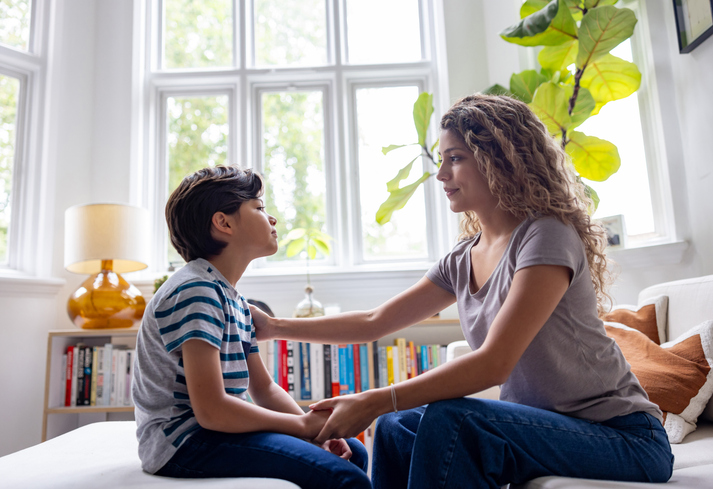Being a parent is like being a guide through a big, confusing maze. It can be even trickier when your child is feeling anxious or depressed. The good news is there are steps you can take to help them feel better.
Understanding Anxiety and Depression in Kids
Anxiety and depression aren't just things grown-ups deal with. They are among the most common mental health challenges kids, from ages 3 to 17, face. Anxiety and depression can show up in a number of ways. Kids might have trouble sleeping, stomach issues, headaches, feel worried a lot, have big mood swings, trouble with friends, or see a loss of interest in activities. These signs in excess can all point to your kid experiencing challenges. As a parent, it is important to be aware of and notice these signs so you can support your child.
Steps to Help Your Child
Here are six steps you can take to help support your child:
- Talk to a Doctor: Start by talking to a doctor about any physical or emotional problems your child is having. The doctor can help figure out if there is something else going on.
- Have a Chat: Talk to your child and find out if anything is bothering them. We do not always know what is happening at school or with friends. Taking the time to learn more can help.
- Consider Social Media Use: Think about how much time your child spends on social media. It is best to delay use of it altogether before the age of 16. If your child is using social media, no more than an hour a day is a good limit.
- Keep Healthy Habits: Pay attention to what your child does every day. Are they getting enough sleep? Are they eating well and being active? These things can help them feel better.
- Solve Problems Together: The previous steps can help identify problems. Once you know what the problem is, you can work with your child to solve it and take steps forward.
- Get Help if Needed: If things feel too hard or you are not sure what to do, it is okay to ask for help. Talking to a therapist or using online tools like Learn to Live can be helpful.
Remember, you are not alone in getting through the maze. There are supports and resources you can use. By taking these steps, you can be the support your child needs to get past the struggles of anxiety and depression.




